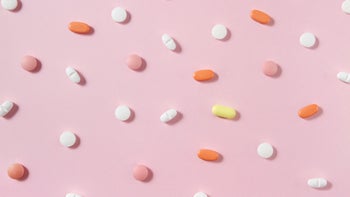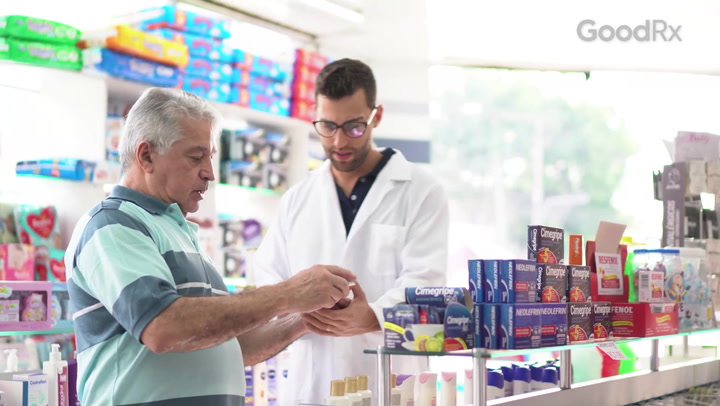
Can You Mix Lithium and Alcohol?
Key takeaways:
Lithium (Lithobid) is a medication that’s prescribed to treat symptoms of bipolar disorder. Combining lithium and alcohol intensifies the medication’s sedating side effects and may lessen the medication’s benefits.
In severe cases, combining lithium and alcohol can lead to dehydration and lithium toxicity — a potentially life-threatening complication.
Make sure to discuss this interaction with your prescriber before combining lithium and alcohol. Your risk may be different from others depending on your age and medical history.
Access savings on related medications
Table of contents

Bipolar disorder is a mental health condition where people experience drastic mood swings that cycle between periods of low moods (depression) to episodes of high moods (mania). This condition is often treated with lithium (Lithobid), a first-choice medication for bipolar disorder.
When you first started taking lithium, your prescriber likely went over key things to know about it. These include side effects to expect and interactions to avoid. One key lithium interaction that’s often overlooked or underplayed is alcohol consumption.
But can you ever mix lithium and alcohol? Or should you avoid the combination at all costs?
Is it dangerous to mix Lithium and alcohol?
People taking lithium should completely avoid drinking alcohol. Alcohol can worsen bipolar disorder symptoms and intensify side effects caused by lithium, such as nausea and drowsiness. So if you’re wondering if you can drink on lithium, the answer is no. It’s best to avoid it.
Is having 1 or 2 drinks OK?
No amount of alcohol is completely safe to drink while taking lithium. Alcohol can change a person’s mood, leading to more mood swings for people with bipolar disorder. Research suggests that even drinking small amounts of alcohol (between 1 and 4 drinks per week) can lead to more manic or depressive episodes.
Since drinking alcohol can worsen symptoms of bipolar disorder, make sure to discuss questions about this interaction with your prescriber before drinking any alcohol.
Are certain people more at risk when combining lithium and alcohol?
Everyone’s risks with alcohol are unique and depend on multiple factors, including genetics and medical history. However, some people may be at higher risk when combining lithium and alcohol.
The following people have greater risks when drinking alcohol while taking lithium:
People with alcohol use disorder (AUD): People with untreated AUD may experience more manic or depressive episodes.They’re also at a higher risk for suicide attempts.
People with liver problems: Drinking large amounts of alcohol can worsen liver disease. When you have liver problems or liver disease, it can cause your body to digest alcohol slower than someone without these issues. If alcohol hangs around in the body longer, it can make the sedative side effects of lithium more pronounced.
People with thyroid problems: Lithium is known to cause thyroid problems. Alcohol can also affect your thyroid or worsen symptoms, especially if you have AUD.
People age 65 and older: Older adults are more sensitive to alcohol’s effects due to how the body changes as we get older. This means people age 65 and older are more likely to feel sleepy or dizzy after drinking. This can make it riskier for them to combine lithium and alcohol.
Female sex: Women have less body water and lower amounts of certain liver enzymes (proteins) than men. This difference can lead to higher blood alcohol levels when drinking. This means more alcohol is present in the bloodstream to interact with lithium, potentially causing more side effects.
How does alcohol interact with lithium?
Alcohol slows down brain signals within the central nervous system (brain and spinal cord), which can impair your brain’s functioning. This is why drinking alcohol causes people to slur their words, have difficulty walking straight or reacting quickly, or have trouble thinking clearly.
Slurred speech, slower reaction time, and blackouts are also possible side effects of lithium. When alcohol is combined with lithium, it creates an additive effect and can worsen the medication’s sedating side effects.
What are typical lithium side effects?
Common side effects of lithium that could be worse when drinking alcohol include:
Drowsiness
Dizziness
Tremors
Lack of coordination
Feeling restless
Stomach upset
Other interactions: Alcohol is one of several lithium interactions that can lead to serious complications.
High lithium levels: Experts explain what lithium toxicity is and why it can be dangerous.
What to expect: Pharmacists review lithium’s side effects — from shaky hands to thyroid problems — and how to manage them.
Although you should never drive while under the influence of alcohol, it’s especially important to avoid driving or performing tasks that require concentration if you have combined lithium and alcohol.
Are there any serious side effects or risks?
Drinking too much alcohol can result in dehydration. This can cause blood levels of lithium to become dangerously high. This is because lithium is removed from the body by your kidneys.
When you become dehydrated, your kidneys will try to hang on to as much water as possible. And in doing so, your kidneys also hold onto lithium longer than usual. This can cause lithium levels to become toxic — a potentially life-threatening complication known as lithium toxicity.
What’s more, it can take up to 24 hours for lithium to reach the brain. This means that symptoms of lithium toxicity can be delayed or get worse after you start experiencing them.
When should you get medical attention?
You should seek medical attention right away if you experience symptoms of lithium toxicity, including the following:
Feeling very lightheaded or drowsy
Extreme confusion or blackouts
Blurry vision
Urinating large amounts of diluted urine (lighter in color than usual or no color)
Ringing in the ears (tinnitus)
Trouble speaking
Muscle weakness or twitches
Vomiting or diarrhea that doesn’t stop
Seizures
Lithium toxicity can be life-threatening and needs immediate medical attention. If you or someone you know may be experiencing lithium toxicity, seek help at the closest ER or by calling 911.
When can you start drinking if you’ve stopped taking lithium?
Make sure to discuss this question with your prescriber before drinking alcohol or stopping lithium. Most people taking lithium do so long term. It’s important to take your medication as prescribed to help it work as well as possible. You should never skip a dose of your medication just to have a drink.
But what about if your prescriber has instructed you to stop taking lithium for other reasons? How long would you have to wait to have a drink?
How long does lithium stay in your system?
Lithium can stay in your body for a long time. It typically takes about 18 to 36 hours for the body to clear half of the medication. However, lithium may take about a week to be fully cleared out of most people’s systems.
Lithium can stay in the body longer for some people depending on their medical conditions, other medications they’re taking, and their typical diet. For example, people with kidney problems may still have lithium in their bodies for almost 2 weeks after their last dose.
It’s best to discuss this with your prescriber. After reviewing your medical history, they’ll be able to give you a more accurate time when it may be safe to drink alcohol.
Are there any bipolar disorder medications that aren’t affected by alcohol?
There are no FDA-approved medications for bipolar disorder that are completely safe when taken with alcohol. Combining alcohol with these medications can sometimes worsen condition symptoms or lead to harmful side effects. However, some medications that are helpful in treating bipolar disorder may also be helpful for people with AUD.
Anti-seizure medications — such as divalproex (Depakote) and valproic acid — can cause more sedating side effects when mixed with alcohol. However, research suggests that these two anti-seizure medications may help relieve alcohol withdrawal symptoms while also treating bipolar disorder. These studies also found people taking one of these medications had fewer days where they drank heavily.
If you have both AUD and bipolar disorder, it’s best to discuss your treatment options with your prescriber. Be sure to ask if there are any medications they can recommend for you to help with both conditions.
The bottom line
Lithium (Lithobid) is a first-choice medication for treating bipolar disorder symptoms. It’s recommended to completely avoid mixing lithium and alcohol. Combining them can worsen common side effects of lithium, such as nausea or drowsiness. Drinking alcohol (even a drink or two) can also worsen bipolar disorder symptoms.
In severe cases, drinking alcohol can lead to dehydration and lithium toxicity, which can be life-threatening. Your risk of serious complications may be different based on your age, medical history, and other medications you’re taking. So make sure to discuss this lithium interaction with your prescriber before drinking any alcohol.
Why trust our experts?



If you or someone you know struggles with substance use, help is available. Call SAMHSA’s National Helpline at 1-800-662-4357 to learn about resources in your area.
References
Balhara, Y. P. S., et al. (2013). Impact of alcohol use on thyroid function. Indian Journal of Endocrinology and Metabolism.
Cardinal Health 107. (2024). Lithium carbonate- lithium carbonate capsule, gelatin coated.
Cederbaum, A. I., et al. (2012). Alcohol metabolism.
Farren, C. K., et al. (2012). Bipolar disorder and alcohol use disorder: A review. Current Psychiatry Reports.
Goldstein, B. I., et al. (2006). The association between moderate alcohol use and illness severity in bipolar disorder: A preliminary report. The Journal of Clinical Psychiatry.
Hedya, S. A., et al. (2021). Lithium toxicity. StatPearls.
Hirschfield, R. M. A., et al. (2002). Practice guideline for the treatment of patients with bipolar disorder, second edition. American Psychiatric Association.
National Institute on Alcohol Abuse and Alcoholism. (n.d.). Older adults and drinking.
National Institute on Alcohol Abuse and Alcoholism. (2014). Harmful interactions: Mixing alcohol with medicines.
Pervin, Z., et al. (2021). Effect of alcohol on the central nervous system to develop neurological disorder: pathophysiological and lifestyle modulation can be potential therapeutic options for alcohol-induced neurotoxication. AIMS Neuroscience.
PubChem. (2024). Lithium carbonate.
Sperry, S. H., et al. (2024). Longitudinal interplay between alcohol use, mood, and functioning in bipolar spectrum disorders. JAMA Network Open.
Taylor, K., et al. (2022). Adult dehydration. StatPearls.
Was this page helpful?
Related Articles
Browse medications
View AllResearch prescriptions and over-the-counter medications from A to Z, compare drug prices, and start saving.




















